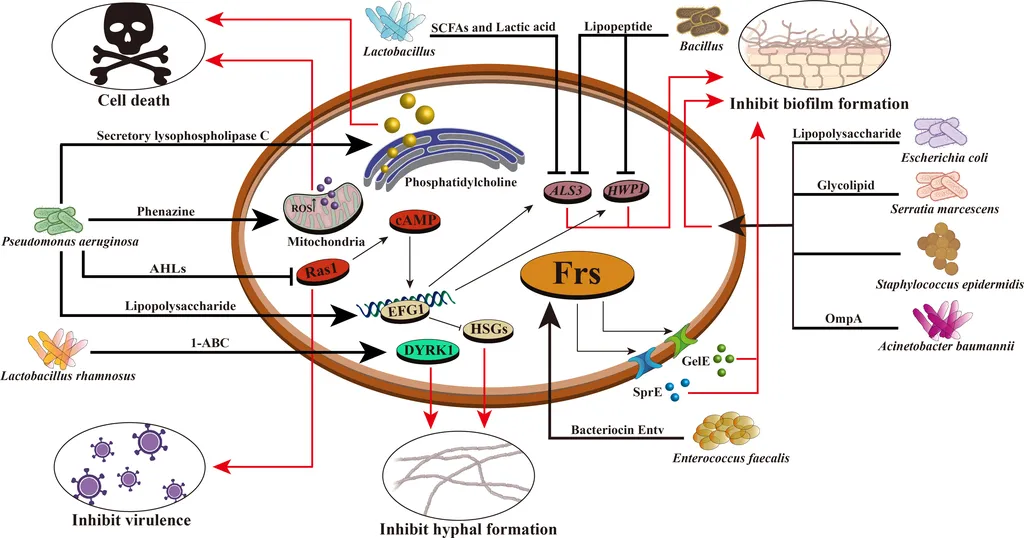In the realm of probiotic research, a groundbreaking study led by Linette Shoby Paul from the Department of Biotechnology at SRM Institute of Science and Technology in India is challenging conventional wisdom and opening new avenues for antifungal therapies. Published in the journal *Frontiers in Cellular and Infection Microbiology* (translated as “Frontiers in Cell and Infection Microbiology”), the research delves into the fascinating world of nomadic Lactobacilli and their potential to combat vulvovaginal candidiasis (VVC), an infection caused by the fungus Candida albicans.
The study highlights the unique morphological adaptations of certain Lactobacilli strains, which form V-shaped cell chains under low pH conditions. This structural adaptation is governed by the LuxS-mediated quorum-sensing system, a process by which bacteria communicate and coordinate their behavior. “These geometric forms are not just survival responses; they reflect a structurally coordinated strategy that enhances both antibiofilm and antihyphal activities,” explains Paul.
The implications of this research are profound, particularly in the field of probiotic therapy. Traditional probiotic formulations often rely on a one-size-fits-all approach, but Paul’s work suggests that leveraging the natural structural adaptations of nomadic Lactobacilli could lead to more effective and sustainable treatments. “By shifting from conventional probiotic formulations to structured microbial interventions, we propose the development of novel therapeutics for anticandidal therapy,” Paul asserts.
The commercial impacts of this research could be significant, especially in the energy sector. Probiotics and microbial interventions are increasingly being explored for their potential to enhance biofuel production, improve waste management, and even contribute to sustainable agriculture. The insights gained from this study could pave the way for innovative applications in these areas, driving forward the development of bio-based solutions.
Moreover, the study’s focus on cellular heterogeneity and the dynamic nature of microbial communities underscores the importance of understanding the intricate interactions within microbial ecosystems. This knowledge could be instrumental in designing more effective probiotic strains tailored to specific environmental conditions, thereby enhancing their efficacy and sustainability.
As the scientific community continues to unravel the complexities of microbial behavior, the work of Linette Shoby Paul and her team serves as a reminder of the vast potential that lies within the microbial world. By harnessing the unique adaptations of nomadic Lactobacilli, we may unlock new frontiers in probiotic therapy and beyond, shaping a future where microbial interventions play a pivotal role in addressing global challenges.

